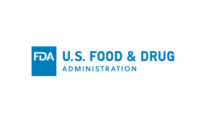Protect Your Secret Sauce from Theft and Intentional Adulteration

At last, the U.S. Food and Drug Administration (FDA) has issued the final rule comprising the seven core regulations that implement the Food Safety Modernization Act (FSMA). Entitled “Mitigation Strategies to Protect Food against Intentional Adulteration,” the rule directs food companies to take steps to thwart individuals who might intentionally adulterate food products or target the food supply chain and cause widespread harm. Similar to FSMA’s Preventive Controls rule, the Intentional Adulteration rule directs domestic and foreign food companies to:
• Assess their operations for vulnerabilities that would allow a person to deliberately contaminate food products
• Design and implement mitigation strategies that minimize or prevent those vulnerabilities
• Ensure proper implementation of each mitigation strategy
• Monitor mitigation strategies
• Correct a strategy where it is not effective or properly implemented
• Verify that mitigation strategies, monitoring, and corrective actions are being applied and are effective
• Train employees on mitigation strategies and verification procedures
• Maintain records reflecting the food defense plan, including mitigation strategies, monitoring, corrective actions, verification and training
Overall, the Intentional Adulteration rule furthers FSMA’s goal of encouraging domestic and international companies in the U.S. food supply chain to take studied and tested measures that prevent food safety problems from occurring and harming consumers.
Given its prophylactic purpose and demands, there is no question that the primary aim of FSMA is to benefit consumers by protecting them from harm. That salutary goal should serve as sufficient reason why food companies should carefully heed FSMA’s lessons. But often lost in the discourse is another benefit resulting results from FSMA’s enactment. With proper planning for and careful implementation of FSMA’s preventative measures, food companies will better protect themselves from the likelihood of product recalls, intentional adulteration incidents, and other food safety mishaps—all of which tend to tarnish reputations and cause loss of market share, or worse.
FSMA is the most sweeping reform of U.S. food safety law in more than 75 years. No surprise, since FSMA’s enactment in 2011 companies have been focused on digesting the law and taking steps needed to make their operations and supply relationships FSMA compliant. But food companies must be mindful to also lookout for other laws that protect other aspects of their operations. On such law, the federal Defend Trade Secrets Act (DTSA) recently took effect.
Similar to remarks made with respect to revision of food laws when FSMA was enacted, some refer to the DTSA as the most significant expansion of federal intellectual property law in decades. It is obvious that protection of trade secrets—the secret ingredients in the secret sauce—is critical to the bottom line of many companies, but that observation nonetheless comes on top of reports that many individuals retain and intend to use confidential corporate information when switching jobs and that losses from trade secret misappropriation may amount to billions of dollars.
For starters, the DTSA creates a federal cause of action, and therefor provides access to federal courts for resolving trade secret misappropriation claims. The DTSA embodies a broad definition of “trade secret”—information that the owner has taken reasonable steps to keep secret and from which value is derived because others do not know it. And it allows for a broad array of possible relief to an owner whose trade secret was purloined, including actual damages, unjust enrichment damages, exemplary damages up to twice the amount of actual and unjust enrichment damages, injunctive relief to prevent actual or threatened misappropriation, and reasonable attorneys’ fees. The DTSA also allows for seizure of allegedly misappropriated trade secrets and the electronic devices in which such secrets may be stored prior to giving notice of the lawsuit or of the seizure to the alleged thief. Considered an extraordinary remedy, the DTSA sets forth a detailed protocol that a trade secret owner must satisfy before a court may allow a seizure and provides for the possibility that the alleged thief recoup damages sustained from a wrongful or excessive seizure.
The DTSA also includes a powerful deterrent for any company that might consider taking someone else’s trade secret—whistleblower immunity. An individual is immune from criminal and civil liability under federal and state trade secret laws where, in confidence, the individual:
• Discloses the trade secret to a government official or to an attorney solely for the purpose of reporting or investigating a suspected violation of law
• Discloses the trade secret to the attorney representing the individual in a lawsuit alleging retaliation by the individual’s employer for reporting a suspected violation of law
• Files under seal any court document which describes the trade secret and the individual does not otherwise disclose the trade secret except as the court may direct
The DTSA requires an employer to provide notice of the whistleblower immunity in any new or updated contract with any employee, contractor or consultant that governs the use of the employer’s trade secrets or other confidential information. The employer may satisfy that obligation by, among other things, cross-referencing a whistleblower policy that sets forth the protocol for reporting suspected violations of law. Should an employer fail to provide notice of the DTSA’s whistleblower immunity, the employer cannot be awarded exemplary damages or attorneys’ fees in an action against an employee, contractor or consultant to whom notice was not provided.
As with implementation of FSMA, preparation is key to taking advantage of the protections and benefits the DTSA provides owners of trade secrets and other confidential information, including:
• Evaluation of existing trade secret protection protocols to make sure that they impose reasonable steps to preserve the secrecy of confidential information
• Update of existing contracts with employees, contractors and consultants to include the DTSA’s whistleblower immunity provisions
• Insertion of the DTSA’s whistleblower immunity provisions in any new contracts with employees, contractors and consultants
• Creation of a whistleblower policy that provides a clear procedure for reporting known and suspected violations and explains that individuals can do so without fear of discrimination or retaliation
Ultimately, however, identification of laws that govern a company’s operations or that may benefit its bottom line and preparation of attendant policies and procedures are only two ingredients in the recipe for policy success. No matter how well drafted, a company policy is unlikely to have its intended impact if employees are unaware of, and from time to time are not reminded of, its provisions. The other ingredients needed to realize policy success are no secret—providing a copy of company policies to new and existing employees, training on how to carry out the policies’ directives and, where trade secrets are at issue, reminders to departing employees of their ongoing confidentiality obligations.
John T. Shapiro, Esq., is a partner and member of the Food Industry Team at Freeborn & Peters LLP (Chicago).
Looking for a reprint of this article?
From high-res PDFs to custom plaques, order your copy today!








